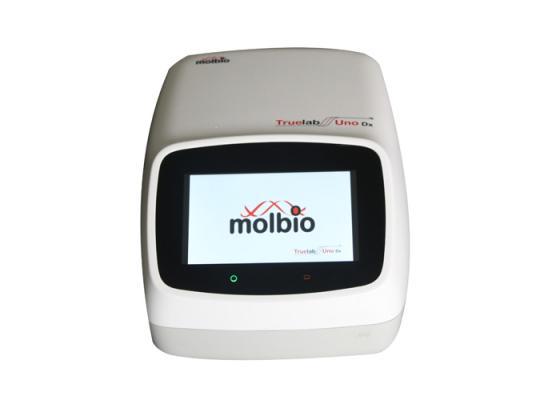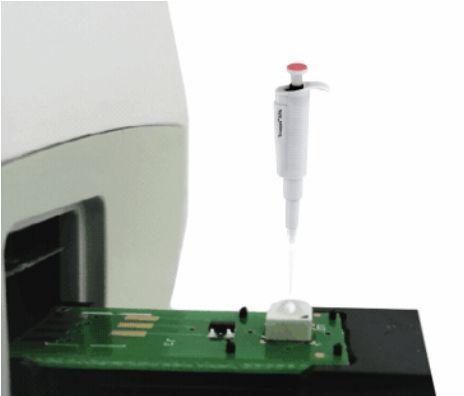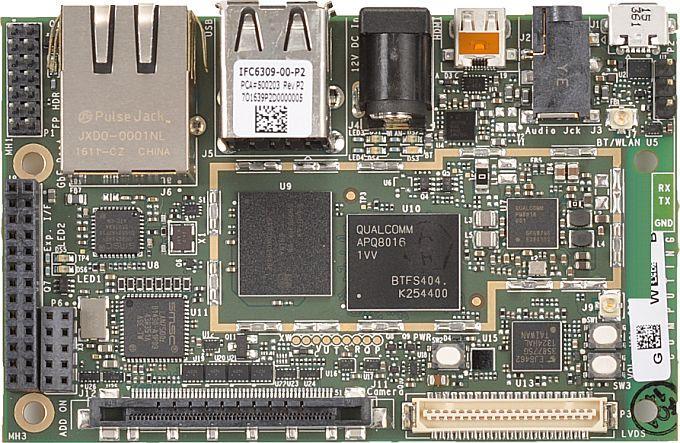Molbio: Solving Healthcare Challenges With Bits and Bytes
Effective healthcare systems rely on a variety of testing and diagnostic tools to detect illnesses and provide the best possible outcomes for patients. One such tool is molecular diagnostics, a state-of-the-art practice that uses DNA for early diagnosis of disease infections. Traditionally, the practice of molecular diagnostics has been limited to centralized laboratories equipped with complex infrastructure, skilled lab technicians, and specialized storage. This means that patients and/or samples often have to travel long distances to these labs, which creates challenges for timely testing, diagnostics, and distribution of results. Such challenges are often further magnified by logistical and socioeconomical issues present in many regions of the world.
One company is tackling these challenges head-on with their mobile molecular diagnostics system powered by Qualcomm® Snapdragon™ mobile platforms: the Molbio Truelab™ Real Time Quantitative micro PCR analyzer (micro PCR analyzer). We recently caught up with Sundeep Subbarau from SMART Wireless Computing (previously known as Inforce) to learn how SMART Wireless worked with India-based Molbio Diagnostics (Molbio) to help them use IoT technologies to create a solution designed to improve access to healthcare.
From molecules to bits and bytesOne of the most developed techniques for molecular diagnostics is Polymerase chain reaction (PCR), which effectively copies a DNA sample and amplifies it for more in-depth study and investigation. Molbio’s micro PCR analyzer effectively puts a PCR lab into a compact, portable, battery-powered package, that can be transported to point-of-care locations:
Patients provide a sample (e.g., throat swab) which is captured and placed on a single-use Molbio Truenat™ chip-based circuit board. The circuit board is then inserted into the micro PCR analyzer which performs the analysis and displays the results on screen.
Molbio’s micro PCR analyzer can perform up to 48 tests of multiple samples of infectious diseases in an 8-hour period and provide reports for each sample relatively quickly. Molbio offers Truenat boards designed for specific diseases ranging from Malaria to SARs. They’ve also recently designed a board to detect COVID-19, which has been validated by the Indian Council of Medical Research for confirmatory detection of the virus. The tests have been implemented in primary health centers in many states across India for COVID-19 testing.
The micro PCR analyzer is designed to provide quick reporting and real-time wireless data transfers (including SMS, email, data), which can allow for earlier detection of infectious diseases and to send results to healthcare providers faster.
Healthcare powered by Snapdragon PlatformsMolbio’s micro PCR analyzer is powered by the Qualcomm® APQ8016E Application Processor, which has been paired with the Qualcomm® WCN3620 for wireless connectivity (e.g., Wi-Fi).
Developers have the option to purchase an off-the-shelf product based on APQ8016E and build their product around it. For their micro PCR analyzer, Molbio turned to SMART Wireless Computing’s Inforce 6309™ Micro Single Board Computer (IFC6309 SBC). The credit card-sized unit powered by the APQ8016E is a good fit for their requirements and price point, and so a build-to-order board was created with some assembly changes. The system power is managed through a pushbutton on/off controller that interfaces with the IFC6309 SBC.
The micro PCR analyzer includes RTC capability, a custom power-management board that controls the system’s power, and an LVDS display with touch-screen capability on which the test reports are rendered. Their chosen display required a conversion from RGB to LVDS, so the data flow involved a panel-RGB-to-LVDS converter to MIPI-DSI-to-LVDS conversion onboard the SBC. The main challenge was ensuring that no artifacts appeared while rendering, which they overcame by working together with their display vendor.
Tackling global supply challenges with local productionThe rapid spread of infectious diseases is a major health problem that often results in a global shortfall of diagnostic supplies and a subsequent shortage of product availability. One of Molbio’s goals was to ensure that the micro PCR analyzer could be produced locally to keep up with supply demands. More generally, they wanted to keep the platform cost low, while providing extremely capable, production-worthy hardware.
Medical devices also typically require a guaranteed long-term supply assurance from vendors. This is to ensure the availability of parts and to avoid product obsolescence. Sundeep says that SMART Wireless Computing’s integrated solution based on Snapdragon with extended-life support, are a great fit for product creators and inventors to use in their products.
Today’s healthcare of the futureGoing forward, Sundeep says the industry needs production-ready hardware that takes the compute complexity out of the equation. This means portable and connected healthcare technologies like hand-held image scanners, which require high compute capabilities for intelligent data analysis, predictive analytics, and continuous patient state monitoring to provide successful diagnoses.
We are proud to see how solutions from Qualcomm Technologies, Inc. are powering next-generation healthcare solutions today, especially during the current pandemic. Developers interested in learning more about the Snapdragon 410e should check the APQ8016E Application Processor on QDN.




